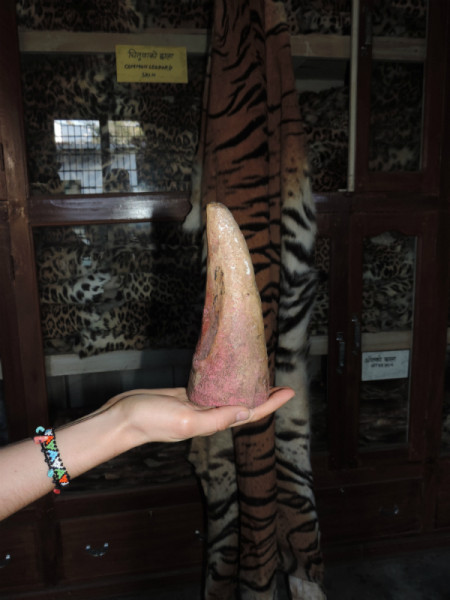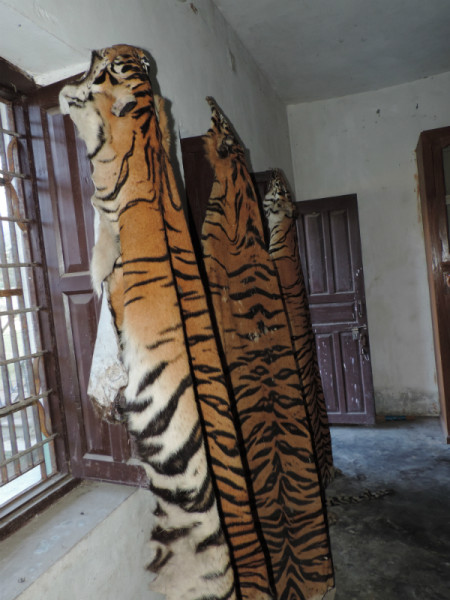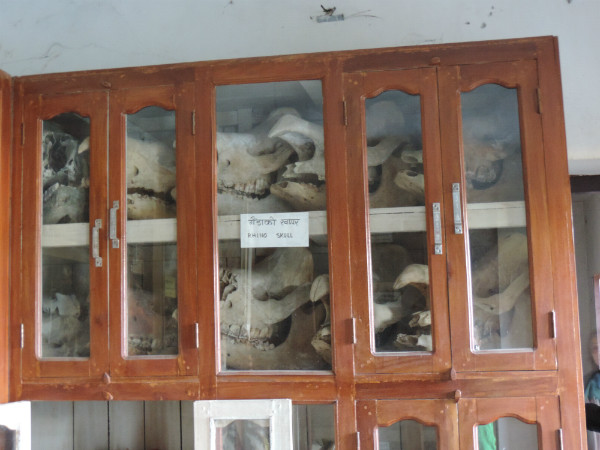Illegal wildlife trade: Life cut short
One of the saddest things imaginable to humans is the sight of a child-sized coffin. Life cut short. Such a vision could mean so many things—tell so many stories—but the ending is always tragic. That image is what came to mind when I held the horn of a baby rhino in my hand. Life cut short.
On December 7, 2013, we visited an army base to see confiscated wildlife parts. We’ve all seen pictures: piles of ivory, stacks of pelts. The first site we visited was a drying room for pelts—it hit me like a punch to the stomach. Even as I write this, a year later, my heart sinks and I feel tears sting the backs of my eyes. My spirits sank instantly, seeing rows and rows of leopards and tigers hanging limp and empty. Void of the spirit and life that draws people from far and wide to zoos and wildlife reserves. Unfortunately, they still hold the beautifully mesmerizing patters only Mother Nature could dream up. The very beauty that too often leads to their demise.
For ten minutes I couldn’t tear my eyes away from the spots, stripes, paw pads, teeth, eyes shut tight over emptiness. Then the army captain led us to the room holding 25 years’ worth of confiscated items. As the dust settled from the abruptly-opened door, my heart sank even deeper at the sight of hundreds of parts piled high: rhino hooves, elephant tusks, otter pelts, rhino skins, monitor lizard skins, crocodile skins and peacock feathers. Tears instantly filled my eyes. I honestly don’t think I’ve ever been so deeply moved and impacted by anything in my life. It was incredibly powerful—so many of these magnificent creatures…gone.
As we moved on to the last room, armed guards watched us wearily. We entered a dark room—the blinds locked tight. When opened, the sun shined in, revealing a large steel safe holding 116 rhino horns valued at around $500,000 USD each, all of different sizes. The captain placed the smallest horn in my hand. I handed it back with a sigh and shallow nod. He placed it back in the safe—a child’s coffin. Life cut short.
As with many aspects of conservation, the challenge here is overwhelming. The trip to Nepal showed us many examples of how we can chip away at these issues little by little and see results at different scales. I find comfort in the fact that the captain has seen a significant decline in the number of wildlife parts confiscated lately. He attributes this to the work WWF is doing in communities—from eco-clubs all the way up to community anti-poaching groups. My spirits are lifted a little bit by this—we are making progress and I know the future is bright.
I use the sadness, anger and frustration I felt that day to fuel my passion for conservation. To do my part to ensure full lives for the species and places I have fallen in love with and those I still hope to see in my lifetime.




